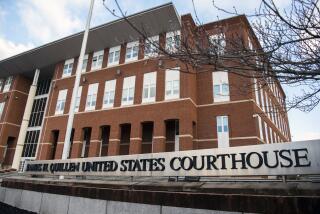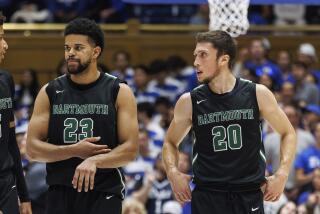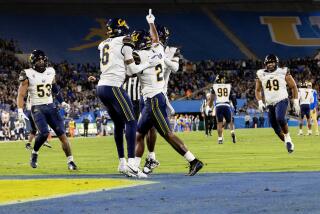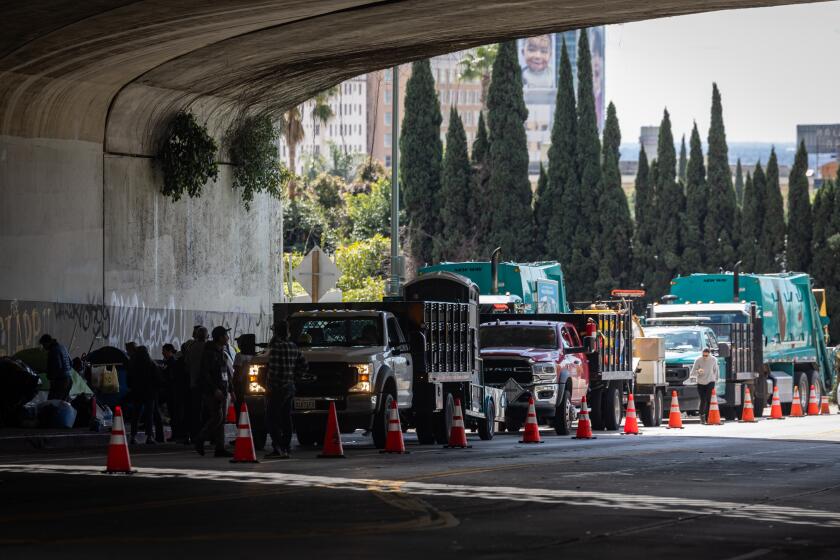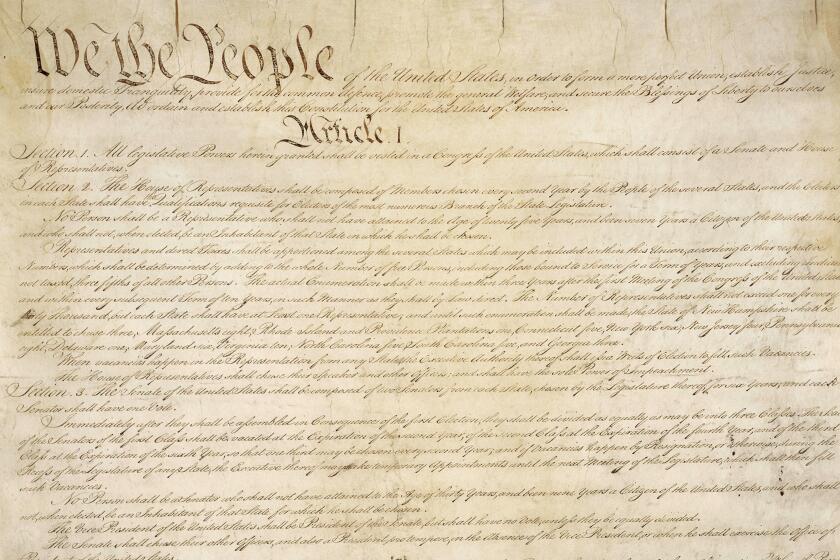Opinion: NLRB says Northwestern football players can unionize. Will others follow?
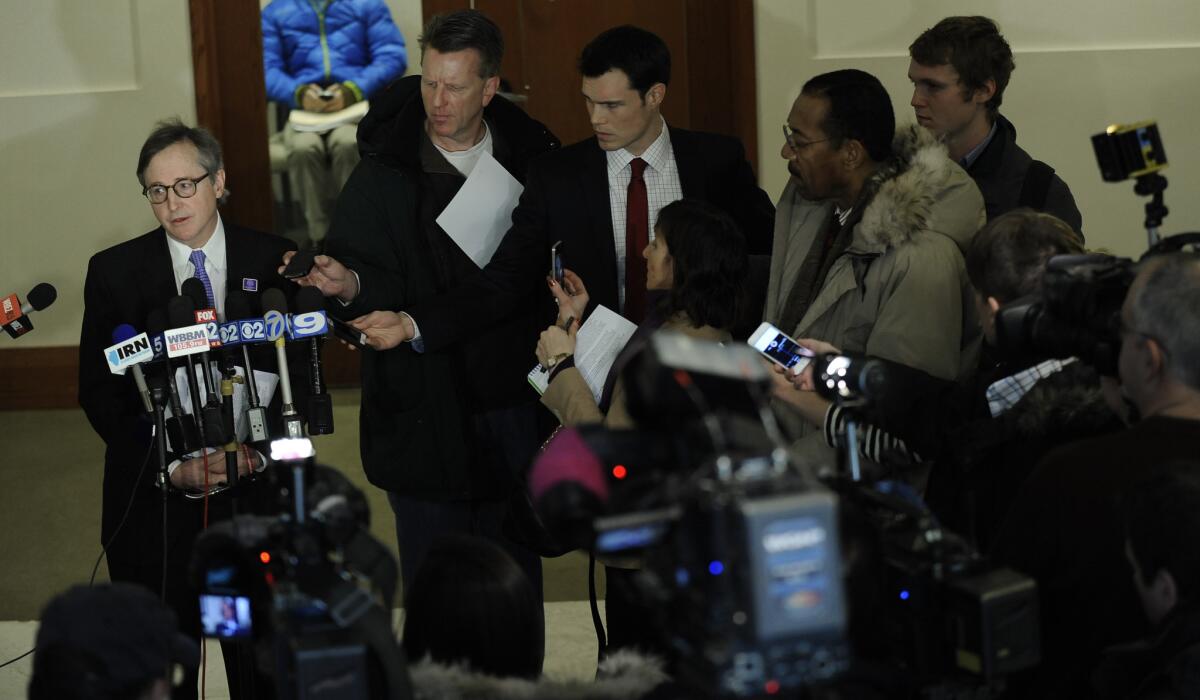
It’s hard to imagine how the National Labor Relations Board could become any less popular among Republicans, but it certainly seems to be trying. On Wednesday, Peter Sung Ohr, the board’s regional director in Chicago, ruled that football players at Northwestern University were employees of the school with the right to unionize, and he pledged to schedule a vote on unionization at a later date.
Sen. Lamar Alexander (R-Tenn.), a former president of the University of Tennessee, quickly denounced the ruling in a statement. “Imagine a university’s basketball players striking before a Sweet Sixteen game demanding shorter practices, bigger dorm rooms, better food and no classes before 11 a.m.,” Alexander said, showing that he’s lost track of college students’ priorities. “This is an absurd decision that will destroy intercollegiate athletics as we know it.”
The next step almost certainly will be a review of the ruling by the full NLRB. But Northwestern’s prospects seem little better there, considering that the board (most of whose members are Democrats appointed by President Obama) has been notably more sympathetic to unionization than the NLRB was under President George W. Bush.
Ohr found that Northwestern football players were employees of the university because they received compensation (scholarships) for performing a full week’s worth of work (practices, meetings, workouts and games) at the university’s direction. Although the NCAA limits athletes to 20 hours per week of practices and games during the season, Ohr wrote, football players on scholarship also spend considerable time training, traveling to games and on other football-related activities. “[T]he evidence establishes that the players continue to devote 40 to 50 hours per week to their football duties all the way through to the end of the season, which could last until early January,” he wrote.
The same rationale could probably be applied to any major college’s marquee sports, as well as quite a few smaller schools’ teams. If the ruling stands, it seems just a matter of time before other student-athletes follow suit. And rather than demanding bigger dorm rooms or better food, the whole point of organizing would be to extract better financial terms from their employers. The most likely target would be the revenue from broadcasts, merchandise and video games that the athletes’ exploits help to sell.
Even if the ruling survives the next round of review, though, it seems certain to be challenged in court and in Congress. There seems little doubt that classifying student-athletes as school employees and allowing them to organize would be hugely disruptive.
Considering that disruption, the NLRB’s approach may not be the right response to the issues raised by the Northwestern players who felt, as so many student-athletes do, that a scholarship isn’t a fair trade for the demands the school places on them, including the debilitating injuries they may sustain. Yet those issues need to be addressed. Have the athletic programs at colleges and universities been co-opted by the professional sports leagues, which use their teams as unpaid developmental squads? Are the interests of the vast majority of student athletes -- the ones who can’t make a career out of their sport -- being subordinated to those of their schools, the professional leagues and the star players?
I played a sport in college, and the experience made me a better student. But then, I spent an average of 20 hours a week on practices, games and training, not 50 to 60 hours. I don’t know what the right balance is between the demands made by professors and by coaches. I’m not sure the NLRB has the answer either.
ALSO:
Did LAPD Chief Beck play favorites?
The president, the pope and practical politics
Should California make Sea World’s killer whale shows illegal?
Follow Jon Healey on Twitter @jcahealey and Google+
More to Read
A cure for the common opinion
Get thought-provoking perspectives with our weekly newsletter.
You may occasionally receive promotional content from the Los Angeles Times.
